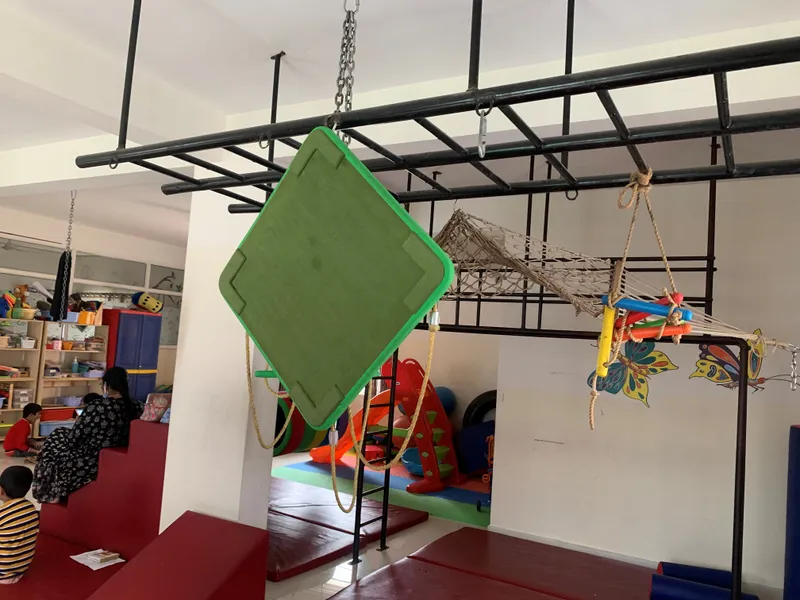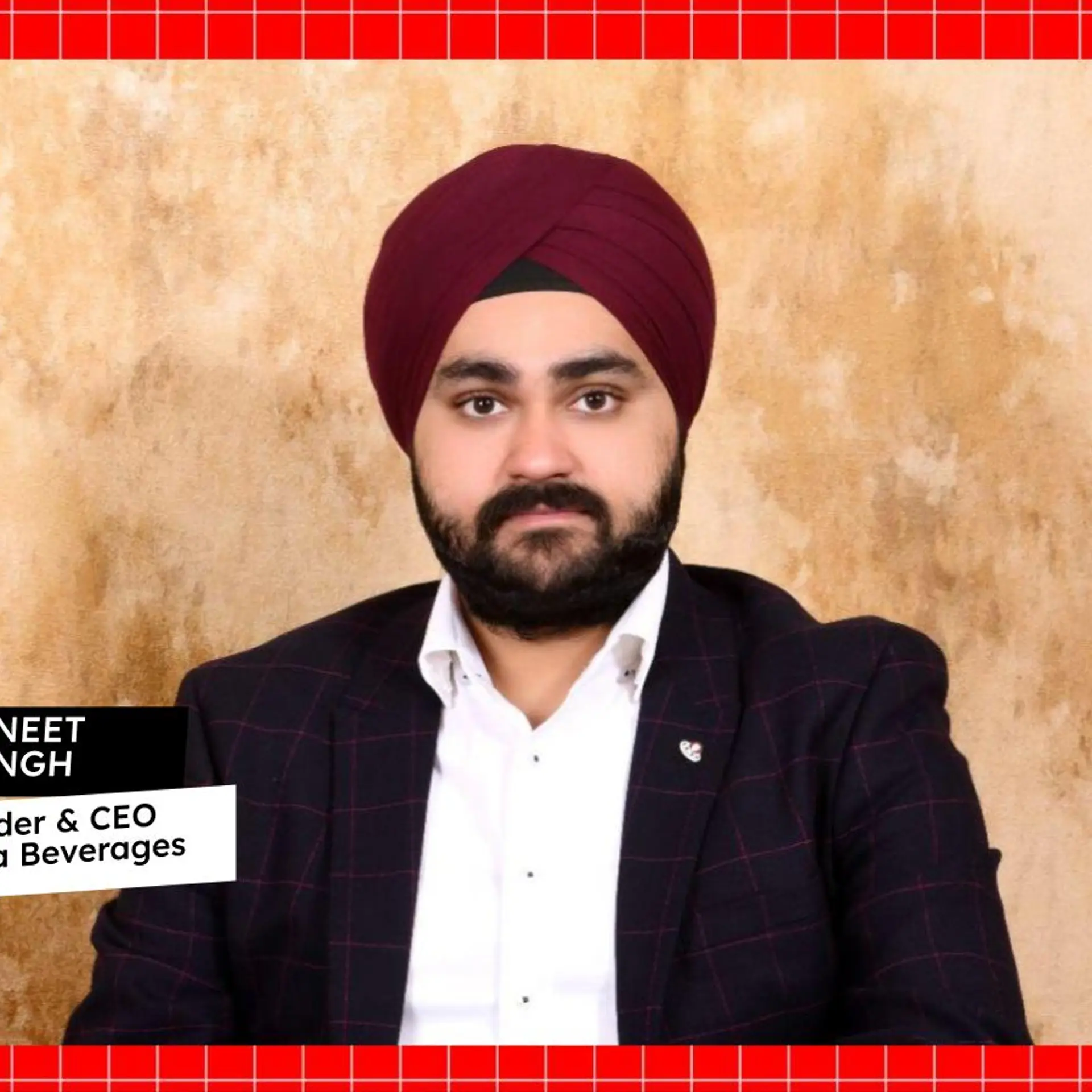[100 Emerging Women Leaders] This woman’s quest for a school for her autistic son led her to start a school for kids with special needs
In this segment of 100 Emerging Women Leaders, we feature Madhavi Adimulam, who quit her corporate job to found Ananya Child Development and Early Intervention Clinic (ACDEC), a school for children with special needs.
When Madhavi Adimulam’s two-year-old son was diagnosed with autism, she had realised he would have special needs and would need teachers who could help him. She felt most teachers in India at that time did not understand how to help him.
“I had a very successful career at an IT services firm, as a technical communicator. I sought transfer to the UK to receive help for my son’s autism. After a few years, because my parents were getting older, I quit my job and relocated to Hyderabad, where I was hopeful to receive the necessary support to take care of my son. However, I could not find a suitable place for his education,” Madhavi says.

Ananya Child Development and Early Intervention Clinic
Her search for good and affordable schools that could support the growth and education of her son led to the idea of Ananya Child Development and Early Intervention Clinic (ACDEC) in 2007.
Setting up ACDEC
Most special schools around Hyderabad in 2007 acted as ‘day care’ for autistic kids; the children were left on their own with no awareness or expertise on how to engage and educate them.
There is a stigma around autism in India due to lack of awareness. ACDEC aims to support autistic kids in their growth and identify their true talent.
“In the early years, due to limited awareness on this topic across India, I also invited a few volunteers from different parts of Europe to provide training and build awareness. ACDEC’s aim is to ‘raise the bar for special needs education in India’,” Madhavi says.
Today ACDEC has evolved to provide holistic care for kids with autism, which includes early detection, intervention, and education. In 2018, the ACDEC business evolved further to a franchise-based model’ – with two new centres in addition to the original clinic currently operational in Hyderabad, and helping around 150 to 200 children each day.
The franchises are owned by mothers of children with special needs, which provides them with an opportunity to take care of their kids, have a career, and make a meaningful difference.
Learning the business models
Madhavi feels that she made several mistakes as she embarked on the entrepreneurial journey to build ACDEC, which led to “spending almost my entire personal savings”.
“The Goldman Sachs 10,000 Women programme, which I graduated from in 2011, helped me build a business plan, and create a pricing model to sustainably run my business. I was thinking emotionally as a mom and not as a business women before I joined the Goldman Sachs programme,” she says.
Goldman Sachs 10,000 Women is a global initiative that fosters economic growth by providing women entrepreneurs around the world with business and management education, mentoring and networking, and access to capital. The programme has trained and empowered more than 1,600 women entrepreneurs in partnership with the Indian Institute of Management Bangalore (IIMB) and Indian School of Business (ISB).
Following completion of the programme, she split her business into two units: a ‘for-profit’ where she charged fees from parents who could afford them, and the ‘not-for-profit’ model to support autistic children from parents who were unable to afford fees.
“We see a ‘conscious’ bias in India culturally and a significant stigma around the business since it involves children with autism. The most common responses include 'you work with children like that?’ or 'sorry to hear that’. There is also a stigma around charging a fee for providing services to this community.
“However, it is not a viable model to provide professional services without charging a fee from parents who can afford it. I continue to educate parents on the financial needs to provide a quality education and care for children with autism, and how it is similar to paying a medical practitioner,” Madhavi says.
Future plans
Madhavi’s team is now focused on helping build access to developmental evaluation for all at low price or for free, with the help of technology. Separate to ACDEC, Madhavi has joined efforts to build a technology app, which is incubated at T-Hub, that helps early detection of developmental delays and children with autism.
Building further on the ACDEC, which is a brick-and-mortar style clinic that supports and educates kids with autism, the app will move the effort to a digital form that is widely accessible for many.
Madhavi says the vision for the app is to help schools, teachers, and parents regularly screen for red flags and provide expert guidance. Eventually, the app will be showcased for government use across schools, and enabled with local languages to further build awareness and early intervention for developmental delays and autism.
Advising all women entrepreneurs, Madhavi says, “Tap the vast opportunities available in India early on in your life and stay resilient. If you are solving a problem for someone, who is willing to pay for the service, you have a business of your own.”
Edited by Teja Lele


![[100 Emerging Women Leaders] This woman’s quest for a school for her autistic son led her to start a school for kids with special needs](https://images.yourstory.com/cs/4/a9efa9c02dd911e9adc52d913c55075e/Imagevcdt-1629036020600.jpg?mode=crop&crop=faces&ar=2%3A1&format=auto&w=1920&q=75)
![[100 Emerging Women Leaders] Meet Mrinal Jha, who went from screenwriting to becoming an entrepreneur with her content company](https://images.yourstory.com/cs/4/a9efa9c02dd911e9adc52d913c55075e/Image4t70-1628745366309.jpg?fm=png&auto=format&h=100&w=100&crop=entropy&fit=crop)
![[100 Emerging Women Leaders] Meet Niharika Singh, who is building MMA talent with One Championship](https://images.yourstory.com/cs/4/721b1c100eb911eb936a1114ea00a5c0/niharikasinghfeatureimage-1628604682865.jpg?fm=png&auto=format&h=100&w=100&crop=entropy&fit=crop)
![[100 Emerging Women Leaders] Meet Kavea R Chavali, who has donned many hats — an engineer, Emcee, and entrepreneur](https://images.yourstory.com/cs/4/a9efa9c02dd911e9adc52d913c55075e/oieZewzZZnYChMR-1628417013026.jpg?fm=png&auto=format&h=100&w=100&crop=entropy&fit=crop)




